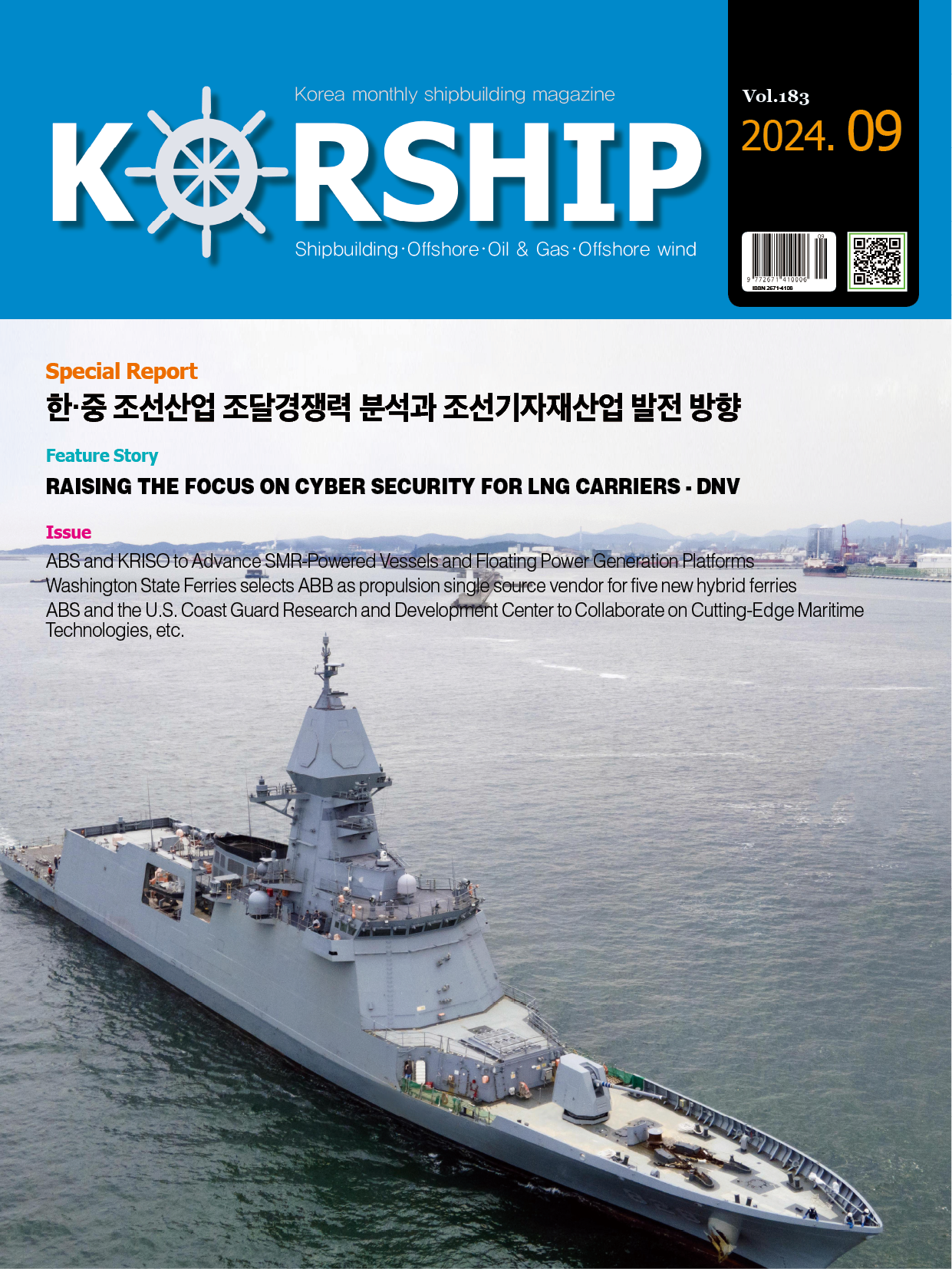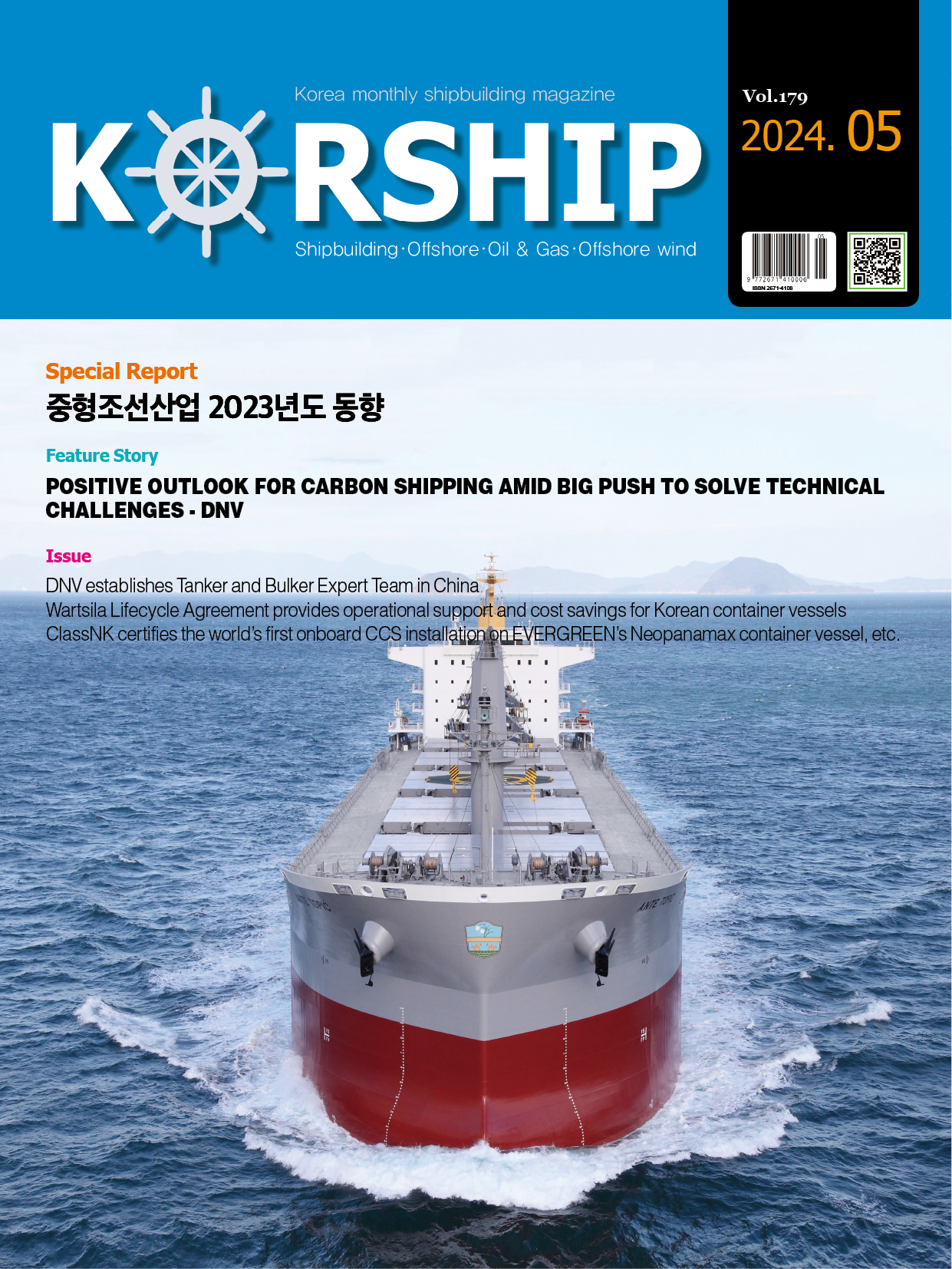Issue ABS Brings Together Leading Industry Players to Tackle Safety Challeng…
페이지 정보
작성자 최고관리자 댓글 0건 조회 1,818회 작성일 21-09-15 19:34본문
ABS has brought together leading companies in the Floating Production Storage and Offloading(FPSO) sector to address the safety challenges produced by a fleet where more than half of the ship type vessels are over 30-years-old and a quarter are over 40-years-old.
The working group, consisting of Chevron, Shell Trading(U.S.) Company, Petrobras, MODEC and SBM as well as The Bahamas Maritime Authority(BMA), the Republic of the Marshall Islands(RMI) Registry, and the U.S Coast Guard 8th District, led by ABS has already seen the creation of five Joint Industry Projects(JIPs) aimed at using technology to tackle a range of FPSO safety issues.
JIPs will tackle composite materials repairs for offshore structures, life extension of wire ropes, gauging management software, applications of photogrammetry and 3D Lidar Laser Scanning, and the role of artificial intelligence in corrosion analysis.
“The offshore industry is faced with an evolving risk profile, with opportunities to enhance protocols and systems to address these risks. With almost 60 percent of the global operating fleet of FPSOs classed by ABS, we are committed to addressing these issues and ensuring the ABS-classed fleet remains the safest and best performing fleet in the world. The challenges surrounding maintenance and structural fitness of aging FPSOs is not just a Class concern; rather, it is an industry challenge that requires the involvement and cooperation of all of the industry players,” said Christopher J. Wiernicki, ABS Chairman, President and Chief Executive Officer.
“Protecting people and the environment, operating and executing with excellence and applying innovative technologies are the cornerstone of our business and that’s why we fully support this timely initiative from ABS,” said Maria Ximenes, Chevron Shipping, GM Marine Technical and Projects.
“Safety underpins everything we do at Shell and we recognize that there are opportunities to proactively address risks within the FPSO fleet,” said Karrie Trauth, SVP Shipping & Maritime for Shell. “We’re proud to be working with ABS and this group of industry and government leaders to develop and deploy real solutions to the maritime safety challenges in this sector.”
“Structural Integrity is one of our main Process Safety Barriers and we all face the same challenges on aging units. It is of utmost importance and in everybody’s interest to share experience, knowledge, ideas and that we agree on a best way forward to maintain structural integrity in a safe and efficient manner. Therefore, we are fully committed to support and participate in this initiative,“ said Ivar Houthuysen, SBM Assets Integrity Director.
"We should recognize that offshore production facilities, which have only 50-years history, are not identical to ships, which have already matured over 6,000-years. It is important to humbly learn how to maintain the integrity of our FPSOs for long design lives through “trial and error” and continuously incorporate new learnings into future FPSOs, including Class rules," said Koichi Matsumiya, Modec GM, Engineering and Deputy CTO.
“I applaud ABS for leading this initiative and facilitating discussion among industry leaders to enhance the safety of the worldwide FPSO fleet through sharing of best practices and consideration of advances in technology,” said Captain Matt Denning, U.S. Coast Guard Eighth District Outer Continental Shelf Officer in Charge, Marine Inspection.
“The RMI Registry looks forward to collaborating with owners/operators, the FPSO working group members, and other industry stakeholders in developing risk management solutions for the aging FPSO fleet. The Registry is also actively engaged in ensuring continued safe operations in the ever-evolving FPSO industry as part of our initiative towards quality, compliance, and value,” said Vice President, Technical – Offshore, Cosmin Bozenovici of International Registries, Inc., which provides administrative and technical support to the RMI Registry.
“This is an opportunity for all the stakeholders in the FPSO value chain to pool their knowledge, technical expertise and their resources to deliver better safety outcomes. We are proud to support this initiative as part of our commitment to quality, compliance and continuous improvement,” said Stephen Keenan, Head of Inspections & Surveys Department at The Bahamas Maritime Authority(BMA).
ABS has also developed its rules, with a significant number of changes applicable to FPSOs, both for existing units and for new facilities. These Rule changes are intended to address many of the risks related to aging FPSOs from both a design and a maintenance perspective.
A total of 55 FPSO units in the global fleet are reaching the end of their design life in the next five years, a further five already have life extension in place, with a further 19 currently being evaluated for life extension. The efforts of this working group will produce outcomes that assist with the evaluation and potential acceptance of life extension.
ABS classed the first FPSO vessel in U.S. waters in 1978 and continues to lead safety and innovation with new technology that supports larger, more complex FPSOs operating in ultra-deep water and in the pre-salt region of Brazil.












